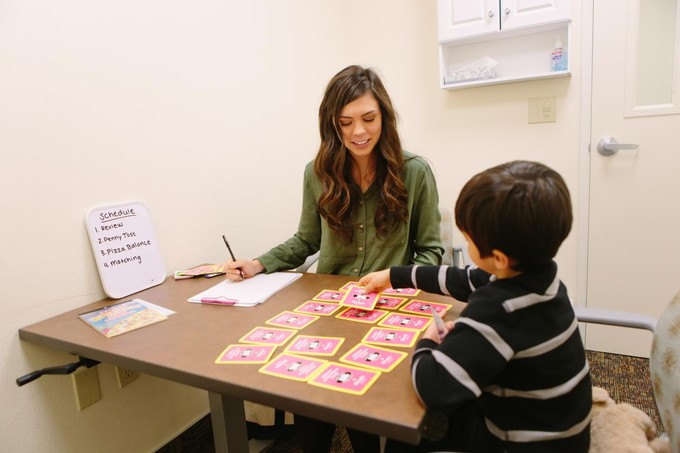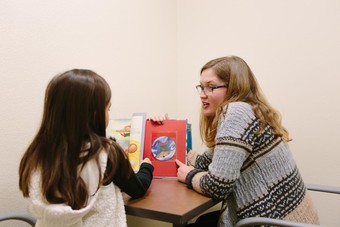
Just a few years ago, Whittier resident Luis Contreras noticed his elementary-aged son becoming more and more self-conscious about his speech. His son had a common speech problem among kids: articulation of the “r” sound. He’d become increasingly quiet and participated less in class because peers would make fun of how he talked.
Since his son attended a private school, speech therapy services were not readily available as they are in public school systems, and private sessions were very expensive. Contreras tried using online tools but didn’t find them highly effective.
That’s when Contreras discovered Biola University’s Speech-Language Clinic, a resource that provides affordable services to the local community and training opportunities for undergraduate and graduate students. After four semesters of weekly sessions at the clinic, his son’s speech and confidence were thriving.
“It was life-changing for him — a complete blessing,” Contreras said. Now, Contreras is excited to know his daughter can also enroll in the program when the clinic begins offering services at his daughter’s private elementary school in Whittier.
Biola’s Speech-Language Clinic is an on-campus service with a twofold purpose: to provide students with clinical work experience, and to provide in-demand services for the surrounding community. The clinic offers undergraduate and graduate students from Biola’s communication sciences and disorders department opportunities to provide assessments and intervention to patients with a variety of communication disorders in a controlled, well-supervised environment. Some of the disorders include stuttering, autism, language disorders and language loss due to traumatic brain injury and stroke. Their clients include children and adults ranging from 2 to 82 years of age.
“We have a very good reputation with the community,” said Yvana Uranga-Hernandez, the clinic’s director. “God’s given us the privilege to serve in this way, and I think it’s great for our clients as well as for our students because many undergrad students don’t have the opportunity to do that.”

For the clinical practicum, undergraduates are required to complete two credits, which equates to two clients a semester, or close to 24 hours of client contact. The clinic is a distinctive program that allows Biola’s students to have hands-on clinical experience before they graduate or apply for graduate programs.
Uranga-Hernandez has served as the clinic director for more than 10 years, while the clinic has been around for more than 30 years. Despite its well-established history, some are still learning about it for the first time.
Biola alumna Caryn Silzer (’02) didn’t know about the clinic until the fall of 2015 when her daughter was invited to participate in a diagnostic clinic. In that evaluation, Silzer learned that her daughter had an articulation disorder. Silzer said she and her husband had never noticed any speech issues since they had no trouble understanding their daughter’s speech; with this discovery, they decided to have their son evaluated as well, and found he had a lateral lisp. Now, after a year in the program, Silzer said, “They’ve made significant strides.” She’s seen how both her kids are much more confident and comfortable speaking up and also more intelligible.
In addition to a Bachelor of Science in Communication Sciences and Disorders in Communication Sciences and Disorders, the Department of Communication Sciences and Disorders recently launched a Master of Science in Speech-Language Pathology in Speech-Language Pathology in the fall of 2016.
 Biola University
Biola University
.jpg)

